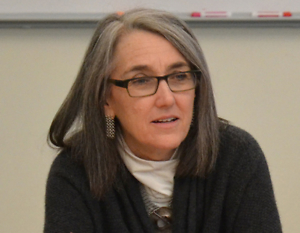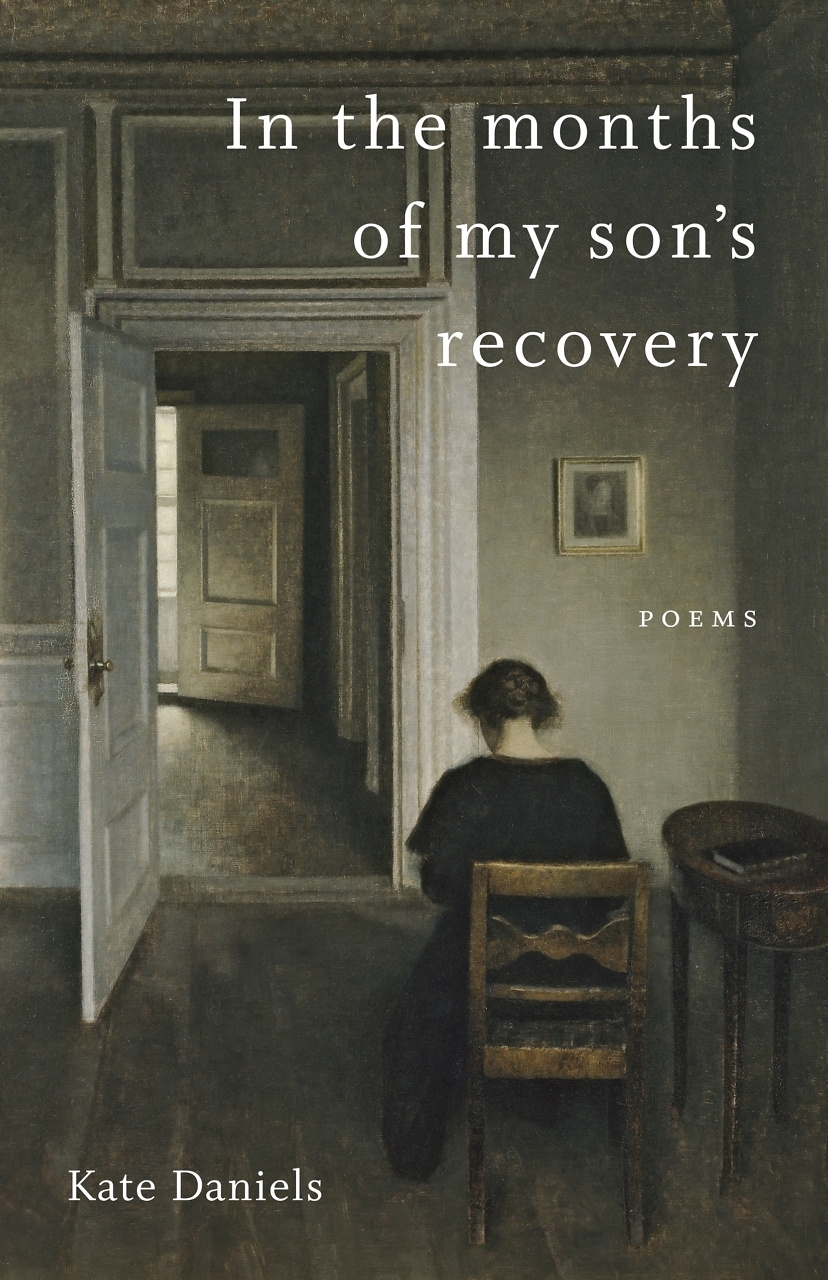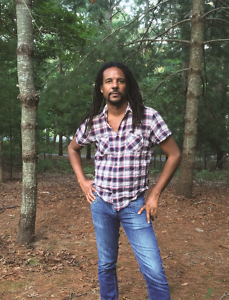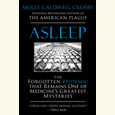Sherlock Holmes: The Fifth Generation
Tracy Barrett introduces kids to the descendants of the world’s greatest detective
What if Sherlock Holmes had married? (We assume here, as do devoted fans the world over, that Holmes was a real man, and not a fictional character created by Arthur Conan Doyle.) And what if that union had produced children, who produced more children, etcetera, until there were two great-great-great-grandchildren who had inherited their famous ancestor’s detective skills? The siblings would star in a series of detective stories, of course. Meet Xena and Xander Holmes of The Sherlock Files, by Nashvillian Tracy Barrett. The third book of the series, The Case That Time Forgot, has just been released.
Barrett, a professor of Italian at Vanderbilt University, achieved critical acclaim and school-booklist-immortality with her young-adult novels Anna of Byzantium and Cold in Summer. As a result, her publisher asked her to work on the Sherlock grandkids idea, which had been developed by another writer. To say she took to it like Mrs. Hudson to tea and scones would be an understatement. The Sherlock Files is a terrific way to get kids interested in detective fiction and to use their brains instead of magic or superpowers to solve problems.
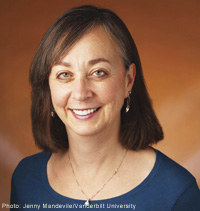 Xena and Xander Holmes are precocious American twelve- and ten-year-olds who, at the beginning of the first book of the series, The 100-Year-Old Secret, have no idea who their ancestor was. The revelation comes when they move to London with their parents and are inducted into the Society for the Preservation of Famous Detectives. After meeting a youngster who claims John Watson as an ancestor, the kids are given Sherlock’s old casebook, in which he recorded the mysteries he never solved. (Not that he couldn’t; he just never got the chance.) They are soon off to find a famous missing painting. There are no deerstalker caps or clay pipes, but deduction proves to be just as applicable to crime solving in 2010 as it was in 1890. Tracy Barrett recently discussed the Holmes family with Chapter 16.
Xena and Xander Holmes are precocious American twelve- and ten-year-olds who, at the beginning of the first book of the series, The 100-Year-Old Secret, have no idea who their ancestor was. The revelation comes when they move to London with their parents and are inducted into the Society for the Preservation of Famous Detectives. After meeting a youngster who claims John Watson as an ancestor, the kids are given Sherlock’s old casebook, in which he recorded the mysteries he never solved. (Not that he couldn’t; he just never got the chance.) They are soon off to find a famous missing painting. There are no deerstalker caps or clay pipes, but deduction proves to be just as applicable to crime solving in 2010 as it was in 1890. Tracy Barrett recently discussed the Holmes family with Chapter 16.
Chapter 16: Were you a Sherlock Holmes fan before you started working on The Sherlock Files?
Barrett: I’ve always loved Sherlock Holmes. I’ve read all the stories and the novels over and over, and I think I’ve seen all the movies with Basil Rathbone and Nigel Bruce, as well as the wonderful BBC series with Jeremy Brett. The first thing I did when I was paid the advance for The Sherlock Files series was to purchase the huge, two-volume Annotated Sherlock Holmes because now it was deductible! It’s a lot of fun and has actually provided me with some good information.
When I was a student in Italy, I improved my Italian by reading Italian translations of books I was already familiar with in English; one of the first I read was Il mastino dei Baskerville. I knew the book so well in English that I didn’t have to worry about looking up every word in the Italian translation. (This is a method I recommend to my students today, although most of them wind up reading Harry Potter in Italian.)
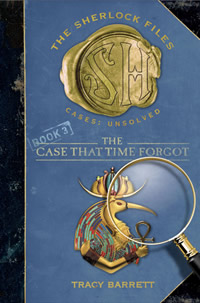 Chapter 16: Sherlock Holmes was famously indifferent to women, yet for the purpose of this series he produced offspring. Will the identity of Mrs. Holmes be addressed in a future book?
Chapter 16: Sherlock Holmes was famously indifferent to women, yet for the purpose of this series he produced offspring. Will the identity of Mrs. Holmes be addressed in a future book?
Barrett: I have a whole backstory worked out to explain not only whom he married but why the world in general thinks that he and Dr. Watson are fictional. My editors thought that this was too complicated for The Sherlock Files books, so we agreed to leave it out. In the fourth book, however, we do learn that Xena’s middle name is Irene, a hint that I hope Sherlockians will enjoy. (Xander’s is Mycroft).
Chapter 16: Sherlock Holmes fans can be very particular about the way the stories are presented and interpreted. What reactions to the series have you had from hard-core Holmesians?
Barrett: I’ve found a few blogs and other sites where members of various Sherlock associations have praised the accuracy of the books—phew! Nobody has written to me with any corrections, and I bet they’d be on me in a flash if they found something, so I’m hopeful that my research has paid off.
Chapter 16: The children in the series use modern technology as an aid to solving the mysteries. What do you think Holmes, Watson, and their literary agent, Arthur Conan Doyle, would have thought of the Internet?
Barrett: I think they would have loved it. Xena and Xander, especially Xena, use the Internet a great deal to find answers to questions, but they’re aware of its limitations and rely more on their powers of deduction and reasoning than on any electronic means to solve their cases. In the second book of the series, The Beast of Blackslope, they’re stuck out in the country without an Internet connection, and they solve the case anyway.
Chapter 16: Xena and Xander are a fairly sophisticated brother-and-sister duo. How did raising your own two children help you in your portrayal of the Holmes kids?
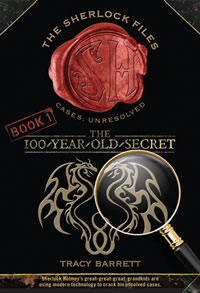 Barrett: Xena and Xander share a lot of traits with my kids. First, like Xena, my daughter was very protective of her brother. She still is, although they’re now twenty-four and twenty-two. My son, like Xander, was a charmer with huge eyes who probably got away with more than he should have. My daughter is very analytical. However, she isn’t athletic, and my son doesn’t have a photographic memory.
Barrett: Xena and Xander share a lot of traits with my kids. First, like Xena, my daughter was very protective of her brother. She still is, although they’re now twenty-four and twenty-two. My son, like Xander, was a charmer with huge eyes who probably got away with more than he should have. My daughter is very analytical. However, she isn’t athletic, and my son doesn’t have a photographic memory.
Chapter 16: In The 100-Year-Old Secret, Xena and Xander are introduced to the Society for the Preservation of Famous Detectives. The SPFD has a number of members, including a great-great-great-grandson of John Watson. Will there be other children, perhaps young Marples or Poirots, solving cases in future books?
Barrett: Anything’s possible. I’m taking a breather after Book IV and concentrating on historical fiction for a while. My real love is ancient civilizations, and [this] fall, Henry Holt will publish my young-adult historical novel, King of Ithaka, which is about the voyage of Odysseus’ son Telemachos and his search for his missing father. Henry Holt is also publishing another YA novel with the working title of Brother Minotaur, which is a retelling of the minotaur story told in alternating points of view by Ariadne (the minotaur’s sister) and Theseus (his killer).
Chapter 16: You have said you love reading mysteries as well as writing them. What are your favorites?
Barrett: Just today I picked up the most recent in Alexander McCall Smith’s No. 1 Ladies Detective Agency series from the library. I love those. My other favorites are Dorothy L. Sayers, Ngaio Marsh, and Josephine Tey. They’re so well written and with such great characters that they’re great to re-read, even if you already know whodunnit.
Chapter 16: As a former skydiver, do you see any parallels between jumping out of a plane and starting a career in writing fiction?
Barrett: Contrary to public perception, skydiving is a very safe sport (safer than downhill skiing, for example), so writing fiction actually takes more of a leap of faith. When you jump from an airplane, the odds are enormously in your favor. When you submit a manuscript, they’re enormously against you. Of course, there’s a lot more to lose if the odds turn on you in skydiving—you can always send a rejected manuscript to another editor, but if your parachute doesn’t open, there isn’t a second chance.
